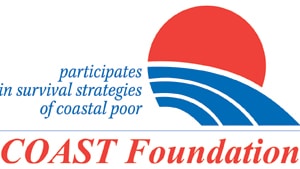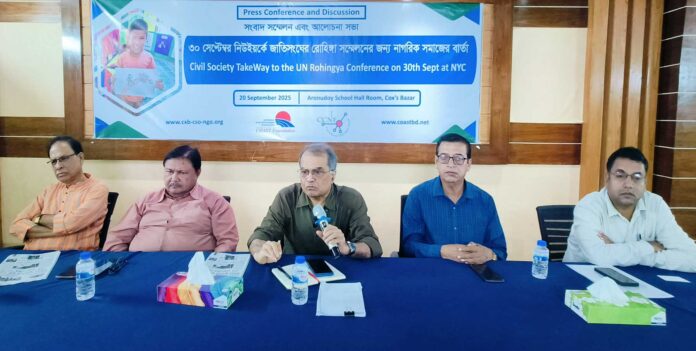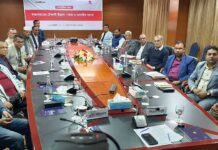Demand for UN investment in the restoration of safe water and arable land in Cox’s Bazar
COAST Foundation’s dialogue ahead of UN Rohingya conference in USA on 30 September
Cox’s Bazar, 20 September 2025: Ahead of the upcoming UN conference on the Rohingya issue on 30 September, a press conference was organized by COAST Foundation at the auditorium of Arunoday School in Cox’s Bazar. Speakers at the event called upon the United Nations and the international community to invest in resolving the safe water crisis, restoring arable land, and ensuring effective waste management.
The press conference was presided by Rezaul Karim Chowdhury, Executive Director of COAST Foundation, while it was moderated by Zahangir Alam, Assistant Director of COAST Foundation. Alongside Mahbubur Rahman, President of Cox’s Bazar Press Club; Ajit Das, former Principal of Ukhiya College; former APP Saki A. Kawsar, writer Ruhul Kader Babul, Save the Cox’s Bazar President Touhid Belal, Adhikar Cox’s Bazar President Advocate Abu Musa Mohammad, former Panel Chairman of Palongkhali Union Parishad Mujafor Ahmed, Help Cox’s Bazar Executive Director Abul Kashem, along with members of various media were present at the event.
At the beginning of the event, a documentary prepared by COAST Foundation was presented, showing the impact of hosting Rohingya refugees on water, arable land, and waste. The documentary revealed that in Ukhiya and Teknaf, 20–25 million liters of groundwater are being extracted daily, causing the water table to drop by 4–12 meters every year. In Teknaf, salinity has been detected in 65% of groundwater sources. Once, clean water could be accessed at a depth of 80–90 feet, but now even at 1,000 feet depth, potable water is scarce. The documentary also revealed that Ukhiya and Teknaf produce about 10,000 tons of waste every month, while Cox’s Bazar municipality generates 90–130 tons of waste daily, 30–50% of which comes from tourists.
The discussion highlighted that waste from Rohingya camps has already destroyed about 300 acres of arable land in Ukhiya and Teknaf. If the land had remained cultivable, it could have produced around 30,000 tons of crops annually. Proposed solutions showcased in the documentary included waste separation for fertilizer and recycling, composting of fecal waste, rainwater harvesting, re-excavation of abandoned ponds, limited use of groundwater, and desalination of Naf River or seawater for supplying refugee camps.
Rezaul Karim Chowdhury stated, “We must convert waste into energy. Systematic waste management must be introduced in Cox’s Bazar town. Biodegradable waste can be turned into fertilizer, while non-biodegradable waste can be recycled for economic use.”
Mahbubur Rahman said, “It is urgent to create alternative sources of safe drinking water for Cox’s Bazar town as well as Ukhiya and Teknaf, establish permanent waste treatment plants, and restore the abandoned farmlands around the camps.”
Mr. Ajit Das noted, “Due to the Rohingya influx, many local people, especially near the camps, have lost their farmland, and crops can no longer be grown there. Since the possibility of repatriation seems unlikely, donor agencies and stakeholders must take responsibility to return the cultivability of those lands.”
Abul Kashem said, “We must raise our voices to reclaim the farmlands taken over by the Rohingya camps and ensure those lands can be cultivated again.”
Mr. Mujafor Ahmed shared, “There are 25 Rohingya camps in Palongkhali, which have led to a severe groundwater crisis. Even after drilling 700 feet deep, we cannot find fresh water, and what we do find contains salinity.”
Mr. Erfan Hossain pointed out, “Plastic never decomposes in soil and is extremely harmful to the environment. In developed countries, one ton of plastic waste can produce 13 liters of diesel or 100,000 plastic cylinders. The UN and donor agencies must take long-term projects to implement such solutions to protect Cox’s Bazar’s environment.”
Mr. Saki A. Kawsar emphasized, “At both national and international levels, waste management for host communities and treated water from the Naf River must be ensured for Rohingya camps.”
Please download press release [Bangla] [English]
Photos
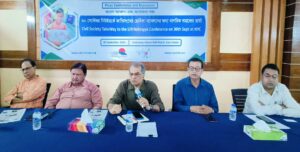 |
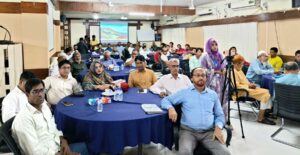 |
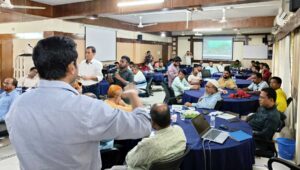 |
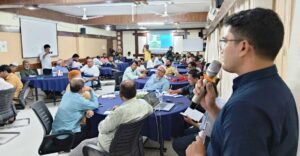 |
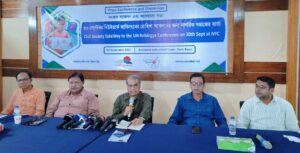 |
Newslink
 |
 |
 |
 |
 |
 |
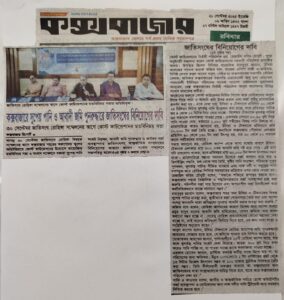 |
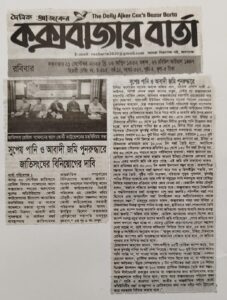 |
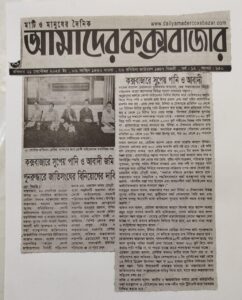 |
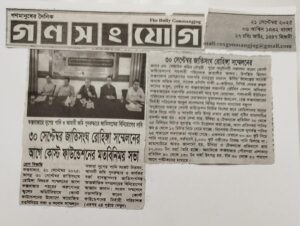 |
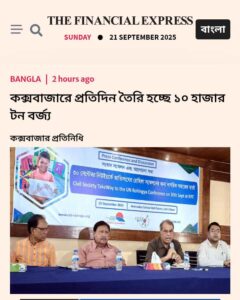 |
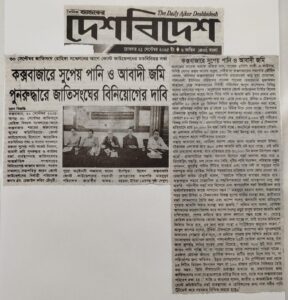 |
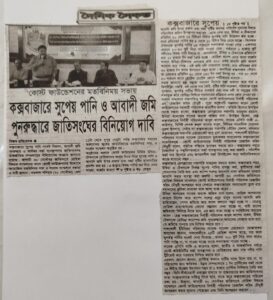 |
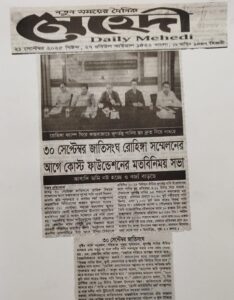 |
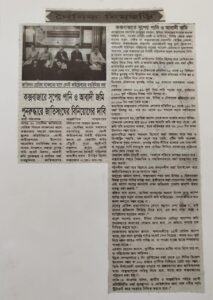 |
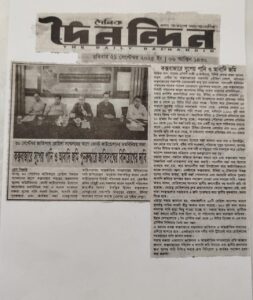 |
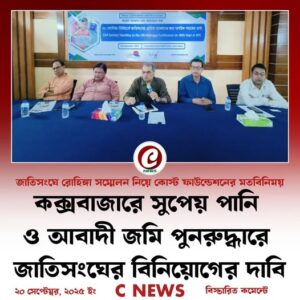 |
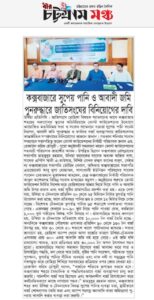 |
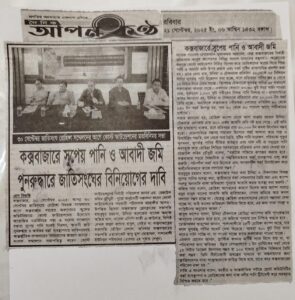 |
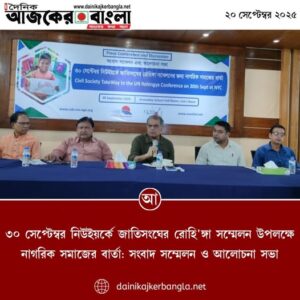 |


